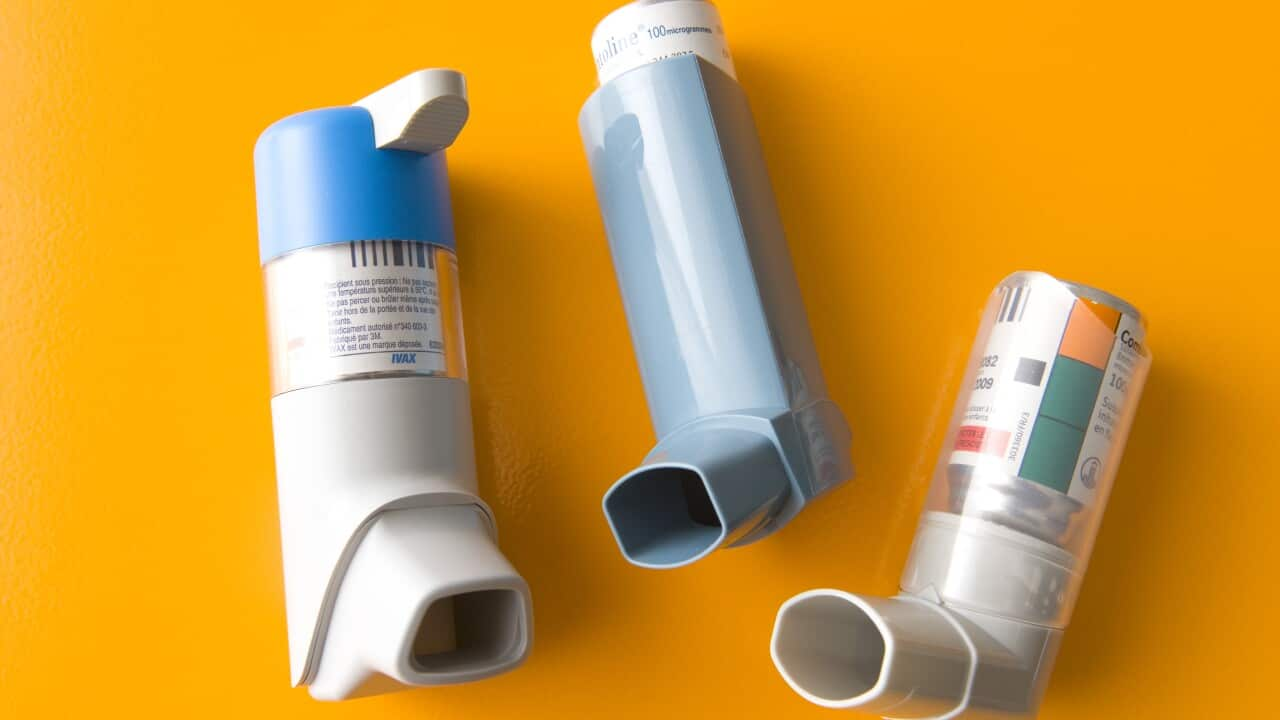KEY POINTS
- Research from Australia and now the United States has linked gas stoves to childhood asthma.
- Asthma patients in Australia say more homes should move away from gas stoves.
- Experts say there's a range of other options for residents.
Syed Muqtadar says he was just seven years old when he was on the "verge of death".
In his classroom in India, the schoolboy suffered a major asthma attack. He struggled to breathe as his father rushed him to a medical centre, where he waited hours for a doctor to see him.
"It was one of the most painful times in my life," Mr Muqtadar - also known by his nickname Sam - told SBS News.
"I just looked out for the doctor as the only person who could relieve me from this pain and agony."
Now living in Australia and in his 40s, the Melbourne resident and occupational health and safety adviser blames years of exposure to household wood and gas burners for his predicament.
"My grandparents were die-hard fans of wood heaters and all the aromas you have during Ramadan and other festivities," he said.
"I could barely stay there for two minutes."
His room in his childhood home was close to the kitchen.

Sam, a Melbourne resident and asthmatic, with his family.
"I would say the first I used an asthma puffer was in Australia."
But even in Australia, Mr Muqtadar and his family have moved homes five times in nine years to avoid the risks of exposure and safety risks associated with gas-installed properties.
What does the research say about gas and asthma?
A 2018 study from the University of Queensland found about 12 per cent of childhood asthma in Australia could be attributed to gas stove exposure and 8 per cent to household dampness.
Last week, a peer-reviewed research paper in the United States said that 12 per cent of childhood asthma cases in the United States and Europe could be attributed to indoor gas stoves.
That recent research has triggered a wave of debate in the US, with conservatives criticising calls for gas cooktops to be removed from households.
In Australia, the Victorian government last year announced it was phasing out new gas installations for residential and commercial spaces.
Research from Asthma Australia supports the move and identifies dangerous risk factors associated with gas cooktops.
"We know gas emits a range of toxic pollutants, and this is linked to 12 per cent of childhood asthma burden," Michele Goldman, Asthma Australia CEO, told SBS News.
"Gas cooktops are comparable to tobacco smoke exposure in the home, yet only a quarter of people are aware of the danger."
What can people do to prevent risks associated with gas?
Around half of Australians use gas cooktops, according to Asthma Australia.
Ms Goldman said the danger might come as a "shock" to parents.
"The best thing to do is ensure there’s good ventilation, such as range hoods or open windows, and keep kids out of the kitchen when cooking," she said.
"Long term, we need to transition to safer, healthier options like electric and induction cooking."
Asthma Australia said the federal government should transition towards "healthier" cooking options "but in a way that provides financial support for low-income households, investment by the government into social housing and even incentives for landlords".
Sam warned people not to be complacent about the risks of gas cooktops.
He fears for his daughters, who he says have also suffered from asthma attacks and suffer from trigger factors.
Asthma Australia research has found almost one-third of people with asthma or allergies have worse symptoms when they are at home.
"This is the opposite of what we want, which is safe, healthy and secure homes," Ms Goldman said.











